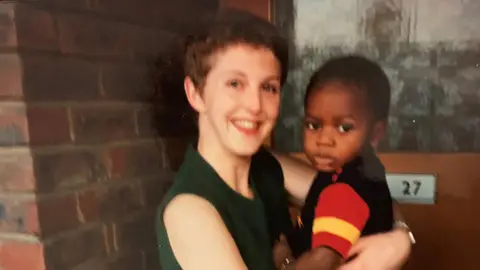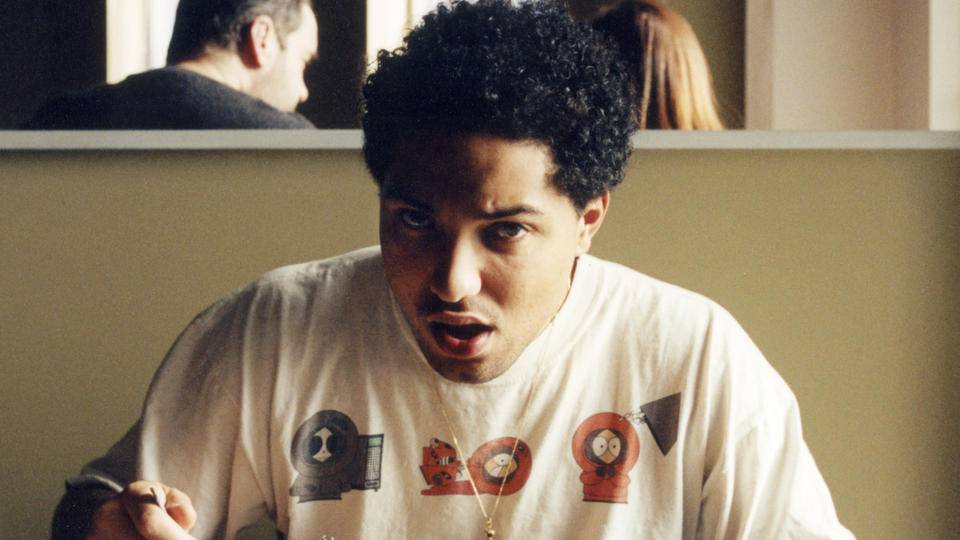Lateef: How I Came To Terms With The Phrase Black British

Black British. Truthfully, my younger self loathed the term. To me, it was a category that was outside the norm and a category that emphasised that I was other. I associated the term with negative experiences and after speaking to others I realised my feelings were shared.
'10 Brits share their earliest memories of growing up black...'
'
'
I couldn’t tell you the first time I heard the term 'black British' but I do remember the first time I questioned it, leaning over my mother’s shoulder as she was filling out a form. I remember asking why there were so many options and why that one was mine - did that make me different? Her reply was something along the lines of, “That’s who you are and you must always work twice as hard to achieve anything.” Unfortunately for me, it would be much later before she actually sat me down and spoke to me about structural and institutional racism.
What's a child to do? Being told to work twice as hard but not actually being told the reason. Again, this was a shared feeling. Many ‘black British' boys and girls in my generation were told to work twice as hard by our parents with no explanation. We had to censor ourselves - don’t come across as too loud, don't be aggressive and don't wear anything that couldbe deemed threatening, like all black. We didn’t have the luxury of being oblivious and as a result, our childhoods were complex and filled with a weariness we did not completely understand.
Fluid, fragile and performative is how I would describe my blackness prior to sixteen. It’s somewhat difficult to look back and realise that I once thrived on compliments such as, “You speak well for a black person,” or, “You don’t dress like other black people”. Sadly, I saw having these traits as being a positive step away from ‘black British’ and closer to that normalised group, where I could be blind to race and wholeheartedly believe in meritocracy. It took a few incidents for me to break out of this destructive mindset, and I began to challenge my white peers and figures of authority unapologetically.
Black spaces were interesting. We began to understand the advice of our parents and apply them to real life situations. For some, the stereotypes placed on us by the wider society became expectations to live by, to uphold. I too tried to act ‘black’. I changed certain things about myself - the way I spoke, my interests. I vaguely recall wearing my trousers really low and being caught by my mother who then held my ear and dragged me down London’s High Street Kensington. Challenging this way of thinking in some instances was quite difficult. I remember volunteering at a youth club, explaining the dangers of following stereotypes. As I began to explain the importance of learning to navigate a white-dominated society, I was rebuked by a young man who told me, “The white man never wants us to succeed so why should we try”.
In my first year of university I realised what my issue with the term ‘black British’ was. Growing up, we were given no positive associations with it. There was no shared history. We weren't taught about Olaudah Equiano, the first black person to be employed by the UK government. We weren't told about Queen Victoria’s goddaughter, Sara Forbes Benetta, a former Yoruba princess. We weren't taught about the protests and movements created by people like us. All we had, year on year in history class, was the slave trade, which glorified Britain and seemed to hint at the power structures within the world.
It was only a few years ago that my view on the term ‘black British’ changed. Our history on this isle has become more accessible. We have cultural centres, exhibitions and events dedicated to us, allowing us to gain more knowledge. We are now taking control of telling our own stories. We celebrate the contributions of many black Brits, both old and new. While the shared negatives still remain, there are so many collective positive experiences that continue to blow me away, and I’m not the only one that feels this way.
Ten years ago, I would have been irritated at being labelled black British. I would have just preferred being called Nigerian. Looking back, I realisehow contradictory my behaviour was. Despite my contempt, I still attempted to embody the stereotypesand use them as ways to mark/police my blackness.
I guess it took a period of really looking at myself, those around me and those that came before me to reach acceptance.For a long time, I didn’t quite know how to deal with my blackness in a white-dominated society but, while there is still a lot to be discussed on that, I no longer feel torn apart when I am labelled as both black and British.





